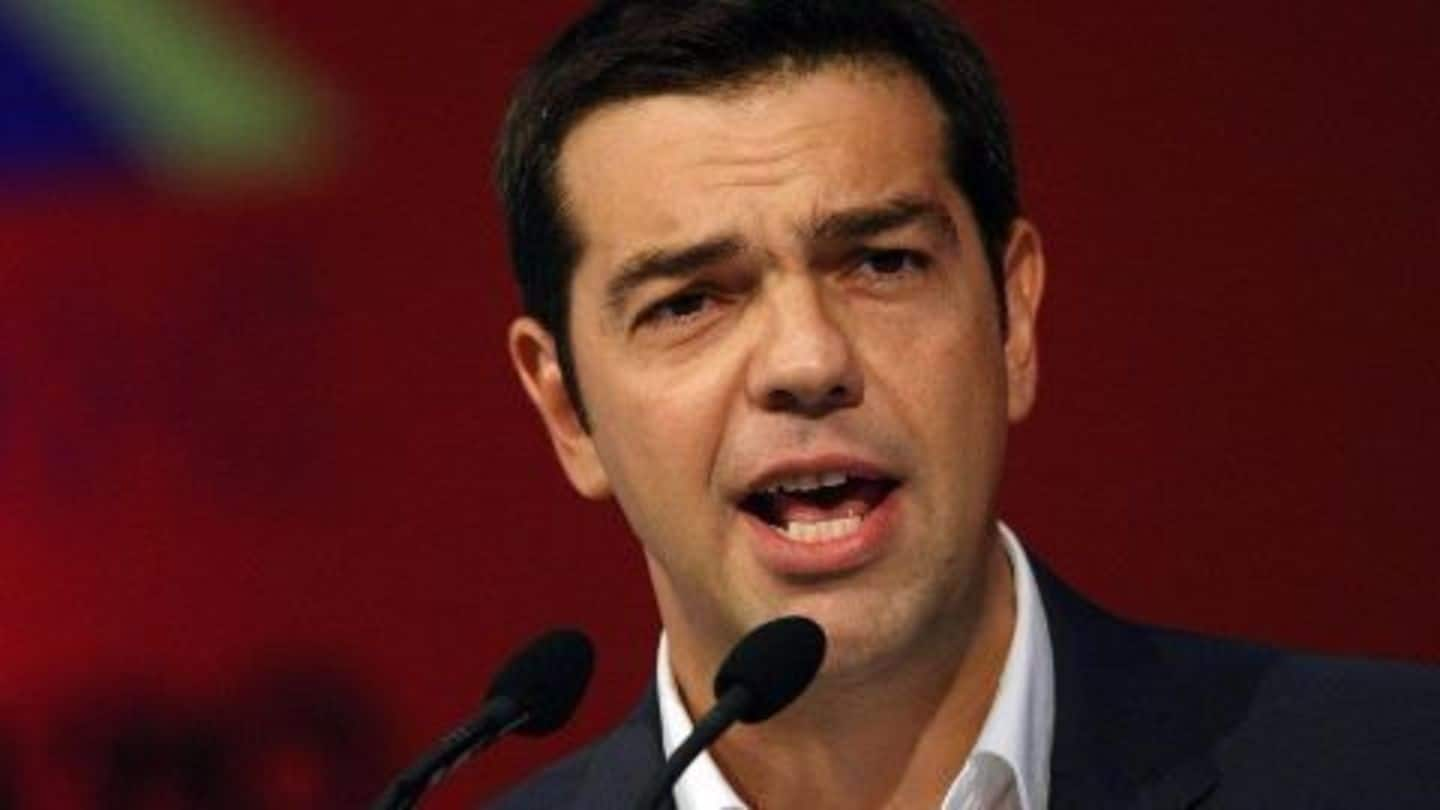
Greek PM resigns and calls for snap polls
What's the story
Greek PM Alexis Tsipras announced his resignation and called for an early election. Tsipras said that he had a moral duty to go to polls after caving in to the creditors' bailout terms. Tsipras hopes to return to power stronger and the election will effectively be a referendum on him and his bailout agreement, which commits Greece to further years of stringent reforms.
26 Jan 2015
Tsipras wins the Greek general election
After the Greece Parliament's rejection of Prime Minister Antonis Samaras's nominee for president in Dec 2014, the country went into elections in January 2015. The radical-left Syriza party headed by Alexis Tsipras who pledged to roll back austerity and renegotiate Greece's debt, swept the polls in the elections. Tsipras thus became the first radical left-wing Prime Minister of the debt-ridden nation.
Information
July 5 referendum
The July 5 referendum was called by Greece PM Tsipras to decide whether Greece should accept the demands of the country's creditors. It resulted in the Greek voters decisively voting 'No', rejecting the deal.
13 Jul 2015
Tsipras accepts 86 billion euro bailout
After long drawn negotiations, Greece agreed to tough reforms imposed by its European lenders in return for a bailout worth up to €86 billion. PM Tsipras who was against austerity and even won the elections based on an anti-austerity campaign, abandoned his promises to oblige the creditors. The bailout was agreed upon despite the resounding 'No' from Greek voters in the July 5 referendum.
13 Jul 2015
Terms of Greece's bailout
Some of the terms stated in the Greece bailout deal include "ambitious" reforms to Greece's generous pension system. Lenders believes that Athens can save 0.25% to 0.5% of GDP in 2015 and 1% of GDP in 2016 by reforming pensions. Privatization of the electricity transmission network operator ADMIE. Streamlining of the VAT system and broadening of the tax base to increase revenue.
15 Aug 2015
While parliament approves bailout, Tsipras faces dissent
As the Greek parliament approved the new bailout program, PM Tsipras was faced with a rebellion among lawmakers from his ruling Syriza party. Among the 149 members of the Syriza party in Parliament, 42 broke ranks with Mr. Tsipras, either by voting against the bailout or abstaining. The dissent from the party hardliners lead to the speculation that Tspiras would call a confidence vote.